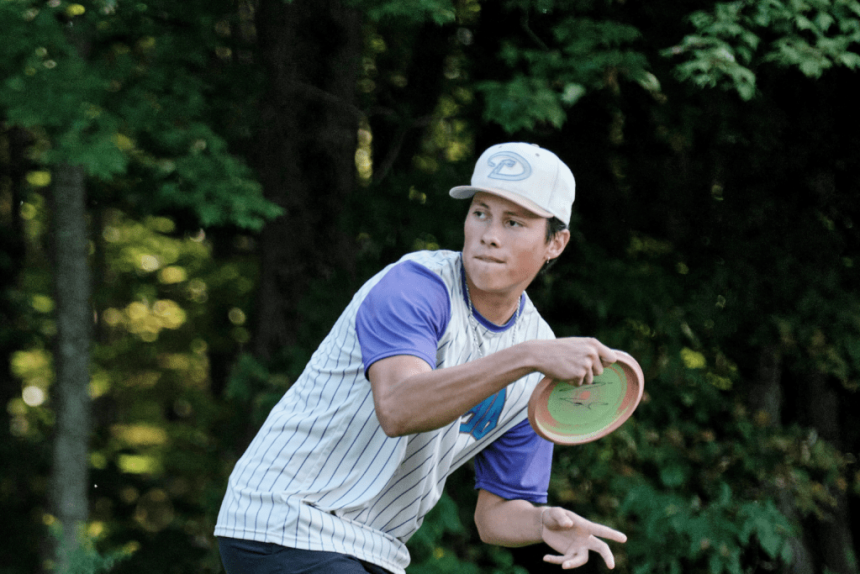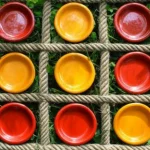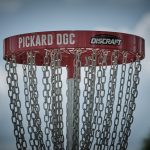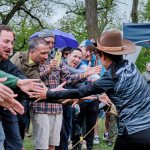When it comes to disc golf, having the right equipment and a solid understanding of the game’s rules are crucial for success. However, many players overlook one of the most important factors that can separate them from the rest: practice.
Practicing regularly can help you develop the skills and consistency needed to become a better disc golfer. In this article, we’ll explore the power of practice and provide tips on how to train for disc golf success.
Why Practice is Essential
Practice is essential for any sport, and disc golf is no exception. By regularly practicing your throwing, you can develop muscle memory and improve your technique. This will help you become more consistent and accurate in your throws, which is critical for success in disc golf.
When you first start playing disc golf, you may not be sure where to start with your practice routine. You may not even know what skills to focus on. This is where setting goals and developing a practice plan can help.
Setting Goals and Developing a Practice Plan
To get the most out of your practice routine, you need to set specific, measurable, and achievable goals. What do you want to accomplish? Do you want to improve your drive, accuracy, or consistency? Do you want to learn a new skill, such as the overhead throw or the hyzer flip?
Once you’ve set your goals, you can develop a practice plan to help you achieve them. Here are a few tips to get you started:
- Start with a baseline assessment of your skills. This will help you identify areas where you need to improve.
- Focus on one or two skills at a time. Trying to improve too many things at once can be overwhelming and may lead to plateaus.
- Set aside specific times for practice each week. This will help you stay consistent and make progress towards your goals.
- Mix up your practice routine. Try new throws, work on your mental game, and incorporate different discs into your routine.
Common Practice Mistakes to Avoid
While practice is essential for success in disc golf, many players make common mistakes that can hold them back. Here are a few common mistakes to avoid:
- Practicing too much too soon. It’s better to start with shorter practice sessions and gradually increase the length and intensity as you build endurance and skill.
- Focusing too much on distance and not enough on accuracy. While distance is important, accuracy is critical for success in disc golf.
- Not warming up or stretching before practice. This can lead to injury and decreased performance.
- Not tracking your progress. This can make it difficult to see how far you’ve come and where you need to improve.
Putting Your Practice to Work
Now that you’ve developed a practice routine and are working on your skills, it’s time to put your practice to work. Here are a few tips to help you translate your practice into on-course success:
- Start with shorter holes and work your way up. This will help you build confidence and momentum.
- Focus on one throw at a time. Try to make each throw count and avoid getting distracted by other players or distractions on the course.
- Stay hydrated and fueled. Proper nutrition and hydration are critical for peak performance.
- Take breaks and stay relaxed. It’s easy to get frustrated or anxious on the course, but taking breaks and staying relaxed can help you stay focused and maintain your momentum.
Conclusion
Practice is essential for success in disc golf. By setting goals, developing a practice plan, and avoiding common mistakes, you can improve your skills and become a better player. Remember to start slow, focus on accuracy, and track your progress. With consistent practice and dedication, you can achieve your goals and become a top-notch disc golfer.
FAQs
Q: How often should I practice?
A: Aim to practice at least 2-3 times per week, with a minimum of 30 minutes per session. As you get more advanced, you may want to increase the frequency and duration of your practice sessions.
Q: What should I focus on during my practice sessions?
A: Focus on one or two skills at a time, such as driving, approach shots, or putting. Try to mix up your practice routine and incorporate different discs and throws into your routine.
Q: How do I track my progress?
A: Keep a practice journal or log to track your progress. Record your throws, scores, and notes about what you worked on during each session. This will help you identify areas where you need to improve and track your progress over time.
Q: What if I’m new to disc golf? Should I start with practice or start playing courses?
A: If you’re new to disc golf, it’s a good idea to start with a mix of both practice and playing courses. Start with shorter practice sessions to get a feel for the game, and then gradually increase the length and intensity of your practice sessions as you build confidence and skills. As you get more advanced, you can start focusing more on playing courses and competing against other players.
Q: Can I practice at home or do I need to go to a course?
A: While it’s ideal to practice at a disc golf course, you can also practice at home with a mini-disc golf set or in a backyard or park. This can be a great way to get in some extra practice during the off-season or when a course is not available.
Note: This is an example article, you may need to adjust the HTML structure and design to fit your website’s style and layout.








